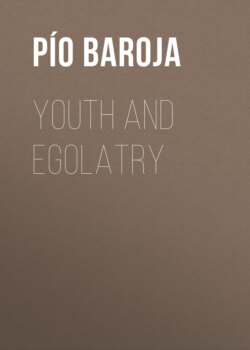Читать книгу Youth and Egolatry - Pío Baroja - Страница 17
На сайте Литреса книга снята с продажи.
THE ROOT OF DISINTERESTED EVIL
ОглавлениеTable of Contents
Tell a man that an intimate friend has met with a great misfortune. His first impulse is one of satisfaction. He himself is not aware of it clearly, he does not realize it; nevertheless, essentially his emotion is one of satisfaction. This man may afterward place his fortune, if he has one, at the disposition of his friend, yes, even his life; yet this will not prevent his first conscious reaction upon learning of the misfortune of his friend, from being one which, although confused, is nevertheless not far removed from pleasure. This feeling of disinterested malice may be observed in the relations between parents and children as well as in those between husbands and wives. At times it is not only disinterested, but counter-interested.
The lack of a name for this background of disinterested malice, which does exist, is due to the fact that psychology is not based so much upon phenomena as it is upon language.
According to our current standards, latent evil of this nature is neither of interest nor significance. Naturally, the judge takes account of nothing but deeds; to religion, which probes more deeply, the intent is of importance; to the psychologist, however, who attempts to penetrate still further, the elemental germinative processes of volition are of indispensable significance.
Whence this foundation of disinterested malice in man? Probably it is an ancestral legacy. Man is a wolf toward man, as Plautus observes, and the idea has been repeated by Hobbes.
In literature, it is almost idle to look for a presentation of this disinterested, this passive evil, because nothing but the conscious is literary. Shakespeare, in his Othello, a drama which has always appeared false and absurd to me, emphasizes the disinterested malice of Iago, imparting to him a character and mode of action which are beyond those of normal men; but then, in order to accredit him to the spectators, he adds also a motive, and represents him as being in love with Desdemona.
Victor Hugo, in L'Homme qui Rit, undertook to create a type after the manner of Iago, and invented Barkilphedro, who embodies disinterested yet active malice, which is the malice of the villain of melodrama.
But that other disinterested malice, which lurks in the sodden sediment of character, that malice which is disinterested and inactive, and not only incapable of drawing a dagger but even of writing an anonymous note, this no writer but Dostoievski has had the penetration to reveal. He has shown us at the same time mere inert goodness, lying passive in the soul, without ever serving as a basis for anything.
